The average electric bill in Arkansas is $137.94, which comes from an average electric rate of 13.15 ¢/kWh and a monthly consumption of 1,049 kWh. The historical data from the EIA shows that the electric rate in May 2024 was 12.29 ¢/kWh, which increased to 13.15 ¢/kWh in May 2025. This slight rise still keeps Arkansas among the more affordable states for electricity costs. This is further reflected in the overall cost of living in Arkansas, which averages around $1,100 per month, significantly lower than that of other states.
Based on historical data, Arkansas residents may be paying electricity at the rate of 13.60 ¢/kWh in 2025. By 2030, the projected rate would be around 17.83 ¢/kWh. If you live in Arkansas and are looking to reduce your reliance on the on-grid power supply, you can check out Jackery Solar Generators. These essential home backup solutions are ideal for extended power cuts and can be used to power appliances to reduce reliance on the grid.
Takeaways
- Arkansas households paid an average electricity rate of 13.15 ¢/kWh in May 2025, resulting in a typical monthly bill of $137.94.
- For May 2025, the average residential electricity bill in Arkansas was slightly lower ($137.94 per month) than the national average of $157.05 per month.
- How much does it cost to live in Arkansas.
- How did the Arkansas electric bill change in the past years.
What Is The Average Electric Bill in Arkansas?
The average electric bill in Arkansas is $137.94 per month, calculated from an average residential electricity rate of 13.15 ¢/kWh and a monthly consumption of 1,049 kWh. According to the EIA's yearly report, the electricity rate has seen a modest increase from 12.29 ¢/kWh in May 2024 to 13.15 ¢/kWh in May 2025.
With an average rate of US $17.47 ¢/kWh and monthly consumption of around 899 kWh, the national average electric bill is $157.05. This latest data depicts that Arkansans pay less than the national average. This affordability is a significant factor in the state's overall lower cost of living.
The differences are noteworthy when you compare Arkansas's average data to neighboring states like Oklahoma and Texas. The average electric bill in Oklahoma is $138.33, with a rate of 12.94 ¢/kWh and a monthly consumption of 1,069 kWh. Texas, known for its vast energy resources, has an average rate of 15.49 ¢/kWh and an average electricity bill of $177.52. These comparisons with neighboring states and the nationwide data highlight Arkansas's advantageous position in terms of electricity affordability.
That said, the average electric bill in Arkansas varies across its major cities. It is calculated by the electric rates provided by the companies and the average monthly consumption. For instance, the average monthly bill in Little Rock is around $120, while in Bentonville, it comes around $160. Similarly, residents of Rogers City pay about $110 monthly, whereas the residents of Fayetteville and Conway pay $150 against their electricity bill.
Here's a detailed comparison between the average electric bill in Arkansas with the national data to give you a thorough understanding of its overall rank:
|
State |
Average Electric Bill (per month) |
Average Energy Rate (in ¢/kWh) |
|
Arkansas |
$137.94 |
13.15 |
|
California |
$172.00 |
35.03 |
|
Delaware |
$159.09 |
18.12 |
|
Florida |
$165.83 |
14.98 |
|
Hawaii |
$206.38 |
41.03 |
|
Iowa |
$120.39 |
14.23 |
|
Maine |
$156.30 |
27.91 |
|
Massachusetts |
$167.36 |
29.94 |
|
Michigan |
$122.11 |
20.25 |
Source: EIA Data from May 2025
The above data shows that Arkansas has a considerably lower electricity rate than many other states. Consequently, the monthly average electricity bill in Arkansas will also depend on the size of your home. For instance, if you live in a 500-square-foot apartment and possess basic appliances, your average electric bill will be around $65.75 monthly. However, if you reside in a 3,000-square-foot home with multiple high-wattage appliances, like an air conditioner, room heater, multiple lights, etc., your average electricity bill will rise to approximately $394.50 per month.
Here's an estimated average electric rate based on the size of your residence in Arkansas:
|
Home Size |
Arkansas |
|
500 sq. ft. |
$65.75 |
|
1000 sq. ft. |
$131.50 |
|
1500 sq. ft. |
$197.25 |
|
2000 sq. ft. |
$263.00 |
|
2500 sq. ft. |
$328.75 |
|
3000 sq. ft. |
$394.50 |
Note: For calculation purposes, we assume that a 500 square foot house in Arkansas has a monthly consumption of 500 kWh.
What Are The Electric Rates in Arkansas?
In Arkansas, the residential electric rate as of May 2025 is 13.15 ¢/kWh. This rate is a summation of different costs that a utility provider bears when it provides electricity to the end-user. The electric rate is the cost per unit of electricity consumed by the customer. Some of the most prominent costs include generation, transmission, and distribution costs.
In most states, electric rates vary based on various factors, including, but not limited to, fuel cost, infrastructure maintenance, and ongoing regulatory policies. For instance, Entergy Arkansas and South Central Arkansas Electric Cooperative are two major electricity providers in Arkansas, and they have varying rates and fee structures.
Time of Use Rates
The time-of-use (TOU) rate is a pricing scheme started by different electricity providers. These providers offer competitive rates to their customers based on the time and period of their respective usage. This rate structure is designed to encourage consumers to use electricity during off-peak hours when demand is lower and electricity is cheaper.
Electricity Providers in Arkansas
Arkansas has several major electricity providers, each with its own structures and service charges.
For instance, South Central Arkansas Electric Cooperative, Inc. (SCAEC) charges its customers a residential availability fee of $25 and a rate of 13.151 ¢/kWh. Similarly, Liberty Utilities charges a customer access charge of $16.10 and has different rate plans for summer and winter. During the summer, Liberty Utilities charges electricity at 11.11 ¢/kWh for the first 600 kWh and 11.82 ¢/kWh for additional usage per kWh. However, winter rates are slightly lower, at 11.07 ¢/kWh for the first 600 kWh and 9.33 ¢/kWh for any additional usage per kWh.
|
Provider |
Charges/Fees |
Summer Rates (in ¢/kWh) |
Winter Rates (in ¢/kWh) |
|
South Central Arkansas Electric Cooperative, Inc. |
Availability Charges: $25 |
13.151 |
13.151 |
|
Liberty Utilities |
Customer Access Charge: $16.10 |
First 600 kWh: 11.11 |
First 600 kWh: 11.07 |
Note: These rates are based on 2025 data from the respective utility providers' websites. Please refer to the providers' websites for the latest information.
With these many options, it is common to get confused when choosing the best electricity provider. When comparing the electric rates from different providers in Arkansas, it's important to consider several factors to ensure you find the best rate for your needs.
Understand Your Consumption
Review your past bills to understand, analyze, and measure your monthly electricity consumption. This will help you predict your household's future usage.
Examine Rate Structures
Refer to the electricity provider's website and look at their different rate structures. Some providers offer flat rates, while others have time-of-use rates, where the charges vary depending on the time of day and season.
Compare Base Charges & Fees
Apart from checking the per-kWh charges, you should also pay close attention to the base charges and hidden fees. These charges or fees may include customer charges, availability charges, distribution charges, and early termination charges.
Porting Benefits
Some electricity providers even offer porting benefits to customers migrating from a different provider. You can check such discounts or programs offered by the providers to take advantage of these one-time benefits.
Compare Rates & Terms
Once you have finalized the electricity provider, review their rates and contract terms and gain insights. You can even contact the electricity providers directly to inquire about their rates, terms, and any special conditions you must meet. This can give you a sense of their customer service quality and help you make a well-informed decision.
How Much Does It Cost to Live in Arkansas?
The cost of living in Arkansas is roughly between $900 and $1100 per person, without considering housing rent. It comprises the cost of utilities, medical bills, groceries, transportation, housing, and miscellaneous expenditures.
Here is a detailed breakdown of the utilities that add roughly $250 - $350 to your monthly cost of living in Arkansas:
Electricity
Like most places in the United States, electricity is one of the major utility costs. According to data acquired from the EIA, the average monthly electric bill in Arkansas is $137.94. This cost is calculated from an average residential electricity rate of 13.15 ¢/kWh and an average monthly consumption of 1,049 kWh. Remember, electricity charges may vary based on the size of the home and the number of high-wattage appliances used during the on-peak or off-peak hours.
Natural Gas
Natural gas is another common utility that adds to Arkansas's overall monthly cost of living. Most importantly, natural gas is consumed more during winter to warm the apartment. As of May 2025, the average cost for residential natural gas in Arkansas is around $27.43 per thousand cubic feet.
Water Charges
Water charges in Arkansas vary significantly by city, utility provider, and meter size. For example, Central Arkansas Water in Little Rock charges a $10.44 monthly service fee for a standard 5/8" meter, while Conway residents pay $7.88 plus $4.57 per 1,000 gallons. Rogers has a $14.85 minimum for up to 1,500 gallons. Many providers also add small fees for watershed protection or state water programs.
Sewer Charges
The sewer charges in Arkansas depend on your municipality and utility company. For instance, the Diamond City in Arkansas charges $29 for the first 1000 gallons. Rogers Water Utilities charges a flat rate of $18.52 per month.
Trash Disposal
Trash rates in Arkansas vary by city and utility provider. For instance, the residential trash collection rates of the City of Fayetteville, Arkansas, are $12.40/month for a 32-gallon cart, $18.94 for a 64-gallon cart, and $26.89 for a 96-gallon cart.
Internet Charges
Internet charges can vary significantly based on speed and provider. For instance, some service providers offer internet services at $20 per month for the first year for 75 Mbps speed, and a few companies offer internet at $85 per month for 1,200 Mbps.
Cable TV
Arkansas offers a wide range of providers for those looking for home entertainment and prefer cable TV. Their prices range from $30 to $70 per month, depending on the number of channels and the provider.
|
Utility Cost in Arkansas |
Average Utility Cost (per month) |
|
Electricity |
$137.94 |
|
Natural Gas |
$27.43 per thousand cubic feet |
|
Water |
$10 - $14 (for 1500 gallons) |
|
Sewer |
$18 - $29 |
|
Trash Disposal |
$12 - $27 |
|
Internet Charges |
$20 - $100 |
|
Cable TV |
$30 to $70 |
Tips to Lower Utilities Cost
There are a few handy tips that would help you lower your utilities cost in Arkansas, like:
- Try replacing old appliances with modern energy-efficient models to reduce electricity consumption.
- Buy a programmable thermostat that will help you optimize heating and cooling schedules.
- Always ensure that the windows and doors of your house or building are properly sealed.
- Replace incandescent bulbs with the LEDs in every room.
- Try investing in solar power to generate your own electricity. If you are looking for more economical and portable solutions, check out Jackery Solar Generators.
- Schedule regular maintenance for your HVAC systems to ensure they run efficiently and do not consume unnecessary electricity and gas.
How Did the Arkansas Electric Bill Change?
From 2010 to 2025, the average electric rates in Arkansas have seen notable changes due to economic shifts and changes in infrastructure costs. In 2010, the average rate was 9.02 ¢/kWh. And, by 2016, it had slightly increased to 10.28 ¢/kWh.
The electric rate started reducing after 2016, with rates around 9.80 ¢/kWh in 2018. However, the residents in Arkansas saw their electricity rates climbing further to 12.05 ¢/kWh in 2021 and then increased to 12.25 ¢/kWh in 2022. In January 2023, the rate decreased to 12.24 ¢/kWh, but rose to 13.15 ¢/kWh by May 2025.
Here's a detailed look at the changes in the electric rates in Arkansas over the years:
|
Year |
Average Electricity Rate (in ¢/kWh) |
|
2020 |
11.27 |
|
2021 |
12.05 |
|
2022 |
12.25 |
|
2023 |
12.24 |
|
2024 |
12.36 |
|
2025 (May) |
13.15 |
Source: EIA
Despite the changes, Arkansas's electric bills have remained relatively low compared to national averages. For instance, in May 2024, the national average electric rate was 16.41 ¢/kWh. In May 2025, it rose to 17.47 ¢/kWh.
Factors Affecting Variations in Electric Bills
As you can see, there is a significant variation in the prices over the years. Several factors affect the changes in the electric bills, like:
Fuel Costs
Changes in fuel prices directly influence the cost of fuels used for electricity generation, such as natural gas and coal. If fuel prices fluctuate, Arkansas residents will see a change in their bill amounts.
Infrastructure Investments
If the utility providers upgrade or maintain the electrical grid and generation facilities, this will affect the distribution charges, which are later borne by the customers.
Weather Conditions
Extreme weather conditions, such as hot summers or cold winters, can significantly drive up energy consumption and costs. It is often circulated by the utility providers that they may adjust their rates to account for increased demand and the costs associated with service during extreme weather.
Jackery Solar Generators For Lowering Your Electric Bills
Jackery is an internationally recognized brand that manufactures a wide range of solar generators, solar panels, and portable power stations. The Jackery Solar Generators that are ideal for extended power backups combine the overall efficiency of Jackery Portable Power Stations and easy-to-carry Jackery SolarSaga Solar Panels.
Jackery Solar Generators are ideal for powering small-to-heavy-duty appliances, like central air conditioners, refrigerators, microwave ovens, and other household appliances. Due to their ergonomic and portable design, you can carry them easily, which reduces your reliance on an on-grid power supply. If you are looking to reduce your average electric bill in Arkansas, here are the best-selling solar generators from Jackery:
Jackery Solar Generator 2000 Plus
If you are looking for a solar generator that can easily be carried around in your house or can be added to your equipment list when you plan an extended RV trip, then you can check out the Jackery Solar Generator 2000 Plus. This solar generator has an ergonomic design and a foldable handle, making it ideal for traveling. With a powerful battery and quick charging, this solar generator can help you power your core household appliances.
Appliance Running Time
- Air Conditioner (1500W): 1.1H
- Refrigerator (300W): 5.3H
- Heater (1000W): 1.6H
- Microwave (800W): 2.0H
- Cooler (200W): 7.7H
Who Should Buy This
The Jackery Solar Generator 2000 Plus is an ideal home battery backup solution for families looking to gradually cut utility costs in Arkansas.

Customer Review
I like this thing; it's got a lot of power... It powered my air conditioner on high... It powered power tools... It's really not that heavy... It doesn't take too long to charge.
— Michael Wheeler.
Jackery Solar Generator HomePower 3000
The Jackery Solar Generator HomePower 3000 is an easy home backup solution designed to keep your core appliances in the kitchen running when grid rates spike or outages strike. It can power fridges, WiFi, fans, and lights for roughly 15 hours and help you save on electricity bills during peak rate periods or outages. It is the lightest and smallest 3kWh LFP solar generator that ensures easy transportation from one room to another.
Appliance Running Time
- Air Conditioner (1500W): 1.7H
- Refrigerator (300W): 8.1H
- Heater (1000W): 2.6H
- Microwave (800W): 3.2H
- Cooler (200W): 11.8H
Who Should Buy This
The Jackery Solar Generator HomePower 3000 is ideal for Arkansas homeowners who want a reliable solution for everyday electricity bill reduction during peak hours and blackout resilience.

Customer Review
What a great product at a great price! So small and portable and flexible. We're setting up our HomePower 3000 and solar panels to be an emergency backup system.
— Mike B.
Jackery Solar Generator HomePower 3600 Plus
The Jackery Solar Generator HomePower 3600 Plus is a useful home battery backup option for Arkansas residents who want more control over power costs and occasional outages. It has a large battery capacity and can be expanded up to 21kWh, so you can run key appliances during peak electricity hours and cut down how much you pull from the grid. It can run your fridge, WiFi, lights, and everyday devices without constantly depending on utility power. With its pull handle and double wheel design, you can move the battery backup anywhere in the house.
Appliance Running Time
- Air Conditioner (1500W): 2.0H
- Refrigerator (300W): 9.5H
- Heater (1000W): 3.0H
- Microwave (800W): 3.7H
- Cooler (200W): 13.7H
Who Should Buy This
If you need an expandable home battery backup that can run a refrigerator for up to 14 days during outages or when the electricity hours are high, you can consider the Jackery Solar Generator HomePower 3600 Plus.

Customer Review
Very happy with our purchase so far. We set it up as a backup in our plant room. Ran a few tests, and it looks like we can support the room for 8 hours, very cool.
— Anonymous
Jackery Solar Generator 5000 Plus
The Jackery Solar Generator 5000 Plus is the most powerful home backup solution that keeps core appliances running for hours. It can support longer-duration power needs like multi-day storms or extended peak-rate stretches in Arkansas winter or summer. It offers a powerful 120/240V output, making it suitable for powering almost all core appliances in a household.
Appliance Running Time
- Air Conditioner (1500W): 2.8H
- Refrigerator (300W): 12.2H
- Heater (1000W): 4.1H
- Microwave (800W): 5.0H
- Cooler (200W): 17.1H
Who Should Buy This
The Jackery Solar Generator 5000 Plus is for households aiming to dramatically slash electricity bills, especially those running high-demand appliances (HVAC, electric water heaters) or preparing for long outages.

Customer Review
I recently purchased a Jakery 5000 plus with an extra battery and a manual transfer switch. They all work well. I am currently peak shaving higher summer electric rates and am comforted that I will have power in an outage. I am building a small solar array to add to the system. Very happy with my purchase.
— James Anglewicz.
How Solar Helps to Save Electric Bills?
Solar system installations offer homeowners or business owners significant financial benefits as they reduce or even eliminate their monthly electric bills. Arkansas offers a great net metering policy; homeowners can benefit from it and generate electricity to offset costs.
In Arkansas, the average monthly electricity bill is $137.94. Homeowners can save up to $1,655.28 annually on their power bills by choosing solar energy. Over time, these savings add up significantly. For instance, in the first five years, one can save approximately $7,960, $15,920 in 10 years, $31,840 in 20 years, and a staggering $47,760 in 30 years.
However, if you stay with the on-grid electricity, based on the current electricity charges, you will expect an annual bill of $53,989.20 in the next 30 years.
|
Time |
Average Electric Bill |
|
1 Year |
$1799.64 |
|
10 Years |
$17,996.4 |
|
20 Years |
$35,992.8 |
|
30 Years |
$53,989.2 |
The total average savings a solar system provides after it pays for itself in Arkansas is around $23,800, excluding the 30% residential clean energy tax credit. If you do not wish to spend such a hefty amount on the solar panel system installation, you can go ahead with Jackery Solar Generators. With these powerful units, you are not limited to powering your household appliances but can also carry them outdoors for RV or camping.
Arkansas Average Electric Bill FAQs
What size of solar generator do I need for my house in Arkansas?
The size of the solar generator that you will require in your home in Arkansas depends on multiple factors, including the appliances and their respective wattage. As per your usage habits, you can go ahead with a large or small generator. What is more important here is understanding the working hours you will get with the solar generator.
For instance, you are using a Jackery Solar Generator 5000 Plus for your 1000-square-foot apartment in Arkansas. In order to understand the working hours, let us assume that you aim to concurrently use an air conditioner (1500W) and one LED light (10W). The working hours that you will get with this solar generator can be calculated with the Running Time Calculator.
On the product page, scroll down to find the calculator. You can add the total wattage of the appliances and then click Enter. In this example, the Jackery Solar Generator 5000 Plus will run the appliances (1510W) for 2.7 hours.
What is the average electric bill per month in Arkansas?
The average monthly electric bill in Arkansas is $137.94. Arkansas's electric rates are relatively low compared to national averages, making it one of the most affordable states to live in with the current market changes.
What state has the highest electric bill?
According to the EIA, Hawaii has the highest electric bill in the United States, averaging $206.38 monthly. This high cost is due to an electricity rate of 41.03 ¢/kWh, which is influenced by the cost of imported fuels.
What is the average cable bill in Arkansas?
The average cable bill in Arkansas ranges from $30 to $70 per month. The range of cable bills in Arkansas and other states depends on the number of channels and the type of package that you have selected from your service provider.
What state has the lowest utility bills?
Utah is known for having the lowest utility bills in the country. Depending on appliance usage and lifestyle, the monthly cost of utilities in Utah ranges between $200 and $300.
Conclusion
Even though the monthly average electric bill in Arkansas is comparatively lower than in other states, like Minnesota, Oklahoma, New York, and Texas, there is always some room to reduce it. If you wish to continue with your appliance usage, then it is highly recommended to check out Jackery Solar Generators, which can power most of your household appliances. What sets Jackery Solar Generators apart from traditional solar panel systems is the fact that you can easily carry them to outdoor locations to power your construction site appliances or have a nice time in your RV.

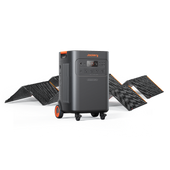












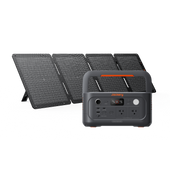



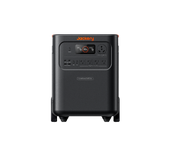







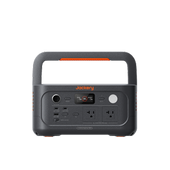





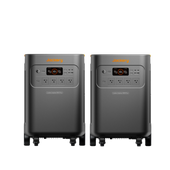
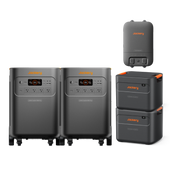





![[Add - on] Jackery Manual Transfer Switch for Explorer 5000 Plus - Jackery](http://www.jackery.com/cdn/shop/files/add-on-jackery-manual-transfer-switch-for-explorer-5000-plus-9017324.png?v=1754016782&width=170)










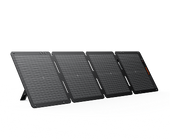


























































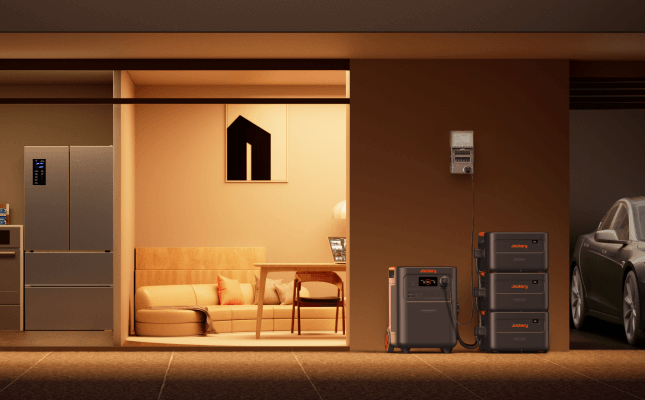
















![What Is The Average Electric Bill in Arkansas [2026 Updated]](http://www.jackery.com/cdn/shop/articles/what-is-the-average-electric-bill-in-arkansas-2026-updated-2786328.jpg?v=1767797432)







Leave a comment